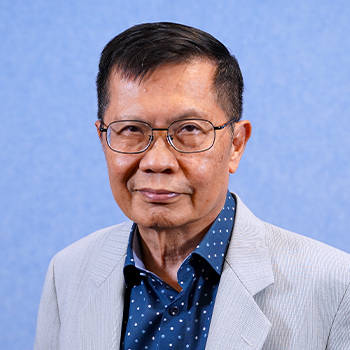Only talks can settle deadlock, say leaders
Business leaders and academics agree Thailand urgently needs face-to-face negotiations to seek a consensus to overcome the political uncertainty after the general election was unable to pave the way for forming a government.
They also believe any type of force such as a military coup is absolutely unacceptable.
MR Pridiyadhorn Devakula, a former finance minister and Bank of Thailand governor, has sent an open letter requesting that caretaker Prime Minister Yingluck Shinawatra resign immediately, as the country is unable to move ahead under a failed government.
Nipon Poapongsakorn, a former chairman of the Thailand Development Research Institute, said while he believes the government is a lame duck, he feels a consensus should be reached without direct or indirect pressure on the opposing sides.
“The change in politics that makes the opposite side come out to oppose a new government, as happened when the red shirts came out to protest against the Abhisit Vejjajiva government in 2010, is absolutely not the way to overcome the situation,” said Mr Nipon.
“I disagree with any force being used or a silent coup. It would just mean an exit from one crisis to another crisis.
“All sides seriously need to set a panel for discussion, and everyone has to take one step back, otherwise we’ll get struck in this situation with no way out.”
Mr Nipon said the caretaker government should set up a public hearing to seek people’s views on whether the majority wants a non-elected leader to lead the country’s reform before rearranging the general election.
Meanwhile, Tawatchai Yongkittikul, secretary-general of the Thai Bankers’ Association, said the private sector wants to see Thailand return to peace as soon as possible and that he agrees with any way that can bring social reconciliation without violence and bloodshed.
He also agrees with Mr Nipon that the opposite sides should hold face-to-face talks to find a solution with compromises. This should be a suitable instrument leading to an acceptance by both sides after the prolonged political conflict.
Mr Tawatchai said he cannot predict the future or whether a silent coup will occur. The country needs a method that can solve deep social conflict. Reform is essential along with a strong controlling system to handle the corruption problem.
Isara Vongkusolkit, chairman of the Thai Chamber of Commerce, urged the government to take action to tackle the political stalemate as soon as possible through either resignation or negotiations.
“Greater damage will be caused to the country if the caretaker government continues sidestepping to address the issue,” he said.
Small businesses and retailers have now started feeling the pinch from tight liquidity, while several hotels in many provinces and Bangkok are facing a sharp decline in occupancy rates to only about 30%.
Working hours of workers in hotels face being cut, he added.
“It’s very worrisome if the political protests continue, as eventually it will affect long-term foreign investment and prompt foreign investors to shift to other countries instead,” Mr Isara said.
He urged the government to speed up selling its rice stocks to raise proceeds to repay farmers.
But Kriengkrai Thiennukul, a vice-chairman of the Federation of Thai Industries, said if Ms Yingluck was asked to step down in circumstances that were against her will, the political unrest would escalate, as many people still support her.
He said MR Pridiyadhorn can suggest her stepping down as one of the options, but Ms Yingluck should not be threatened by anyone.
Karl-Heinz Heckhausen, president of the German-Thai Chamber of Commerce, said both the government and the protesters need to find a way to negotiate through a mutually agreed moderator without the involvement of the Army.
“We are neutral on the political situation, but having said that, the country cannot continue like this,” he said.
The political conflict has already created a very bad image for Thailand among international investors and eroded their confidence, he added.
Stanley Kang, chairman of the Joint Foreign Chambers of Commerce in Thailand, said a military coup is unacceptable in the eyes of foreign investors.
“Even in the past when a coup happened, many companies understood it, but it was not acceptable to them or other democratic countries,” said Mr Kang.
“The prolonged political conflict has created uncertainty in the economy and among international investors.”
____________________________
First published: Bangkok Post, February 7, 2014

